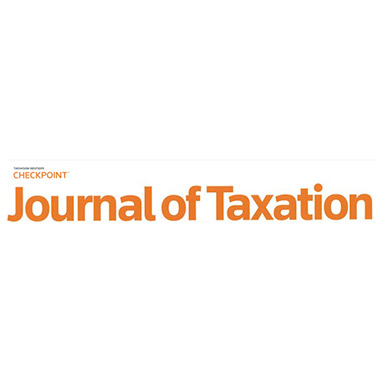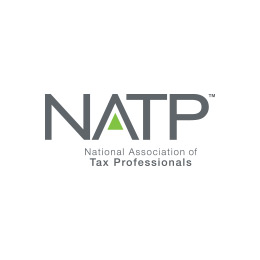The Internal Revenue Service (IRS) has stringent regulations that impact countless New Yorkers with offshore accounts or assets. Failure to meet the reporting requirements will lead to substantial penalties, including hefty fines and potential criminal charges.
For many New York City taxpayers, navigating these complex tax laws can be overwhelming. This is where the services of our attorneys become invaluable. Whether it is negotiating with the IRS, representing you in court, or assisting with voluntary disclosure, our team is ready to help protect your rights. We can counsel you on what must be reported and determine the amount owed, as well as review the programs that could potentially help you get back into compliance with minimal penalties. If you have incurred an IRS offshore penalties while living in Manhattan or elsewhere in NYC, our team is here to help.
For your free case analysis with our attorneys for IRS offshore penalties, call McCormick Tax Law at (888) 973-3503.
What You Need to Report to Avoid IRS Offshore Penalties in New York City
New York City is a cosmopolitan city, filled with countless residents who have foreign financial assets, foreign income, and interests in foreign entities that they must report. If you are unsure about your reporting obligations or you failed to report foreign activities in the past, our attorneys for IRS offshore penalties can help develop strategies so that you stay compliant. The following are assets that must be reported to avoid offshore penalties while living in New York City:
Foreign Financial Assets
A significant part of offshore reporting involves disclosing foreign financial assets. U.S. taxpayers who have an interest in certain foreign financial accounts and meet a certain threshold must file a Report of Foreign Bank and Financial Accounts (FBAR) to report their foreign financial activity. This includes bank accounts, brokerage accounts, mutual funds, trusts, or other types of foreign financial accounts.
Additionally, under the Foreign Account Tax Compliance Act (FATCA), taxpayers with specified foreign financial assets that exceed certain thresholds must report these assets to the IRS on Form 8938. These assets include foreign financial accounts and foreign non-account assets held for investment (as opposed to held for use in a trade or business), such as foreign stock and securities, foreign financial instruments, contracts with non-U.S. persons, and interests in foreign entities.
Foreign Income
Foreign income must also be reported on your U.S. tax return. This includes wages, interest, dividends, rental income, and other income from foreign sources. Even if you paid foreign taxes on this income or the foreign income is not subject to U.S. tax, you still need to report it. However, you might be able to claim a credit or deduction for foreign taxes paid, which can reduce your U.S. tax liability.
Foreign Trusts
The IRS also imposes reporting requirements on foreign trusts. U.S. persons treated as owners of any part of the assets of a foreign trust must file Form 3520, Annual Return to Report Transactions with Foreign Trusts and Receipt of Certain Foreign Gifts. U.S. persons who receive (directly or indirectly) any distribution from a foreign trust must also file Form 3520.
Offshore Income and Offshore Accounts
Failure to report offshore income and the existence of offshore accounts can lead to penalties. The offshore voluntary disclosure program (OVDP) encourages taxpayers to disclose unreported foreign assets, helping them avoid criminal penalties. The Streamlined Filing Compliance Procedures are another option for taxpayers who have failed to report foreign financial assets or pay taxes on these assets.
Parties Responsible for Reporting Assets to Avoid IRS Offshore Penalties in New York City
The responsibility of reporting foreign assets to the IRS is a serious obligation that falls on various parties in New York City, from individual taxpayers to corporations. The following parties must be aware of their duties to avoid punishment by the IRS:
U.S. Citizens and Resident Aliens
Primarily, U.S. citizens and resident aliens residing in NYC are obliged to report their worldwide income, including income from foreign trusts and foreign bank and securities accounts. This obligation also extends to those with dual citizenship.
In most cases, affected taxpayers need to fill out and attach Schedule B to their tax returns, particularly Part III of the schedule. If you have a financial interest in or signature authority over a foreign financial account, including a bank account, brokerage account, mutual fund, trust, or other types of foreign financial accounts, the Bank Secrecy Act might require you to report the account yearly to the Department of Treasury by electronically filing a Financial Crimes Enforcement Network (FinCEN) 114 and a Report of Foreign Bank and Financial Accounts (FBAR).
Certain Non-Resident Aliens
Certain non-resident aliens in NYC are also required to file an income tax return and report their worldwide income. For instance, non-resident aliens who are engaged in a trade or business in New York City must file even if their income did not come from a trade or business conducted in the U.S., they have no income from U.S. sources, or their income is exempt from U.S. tax under a tax treaty.
Corporations, Partnerships, and Trusts
U.S. corporations, partnerships, and trusts based in New York City that have a financial interest in or signature authority over foreign financial accounts must file an FBAR if the aggregate value of the foreign financial accounts exceeds $10,000 at any time during the calendar year. Also, under provisions of the Foreign Account Tax Compliance Act (FATCA), certain U.S. taxpayers holding financial assets outside the United States must report those assets to the IRS on Form 8938, Statement of Specified Foreign Financial Assets.
Estate Executors
Executors of New York City estates also bear responsibility for reporting offshore assets. If the deceased had foreign financial accounts or other offshore assets, the executor must ensure these are reported on the decedent’s final income tax return and, if necessary, on the estate’s income tax return.
Types of IRS Offshore Penalties in New York City
As mentioned, one of the primary reporting requirements for New York City taxpayers with offshore accounts is the Report of Foreign Bank and Financial Accounts (FBAR). If a taxpayer fails to file an FBAR or files an incorrect or incomplete FBAR, they will face substantial penalties. The penalties for non-willful violations can reach up to $10,000 per violation. On the other hand, willful violations can result in a penalty of greater than $100,000 or 50% of the balance in the account at the time of the violation.
The Foreign Account Tax Compliance Act (FATCA) also imposes penalties on NYC taxpayers who fail to report foreign financial assets. Non-compliance with FATCA can result in a failure-to-file penalty of $10,000, with an additional penalty of up to $50,000 for continued failure to file after IRS notification. Furthermore, a 40% penalty on any understatement of tax attributable to non-disclosed assets can be assessed.
In addition to the civil penalties discussed above, taxpayers who fail to comply with offshore reporting requirements can also face criminal penalties. These can include charges of tax evasion, filing a false return, or failure to file an income tax return. If convicted, taxpayers can face fines, imprisonment, or both.
Our New York City Attorneys for IRS Offshore Penalties Can Help Defend Your Rights
To get your free case review, contact our attorneys for IRS offshore penalties at McCormick Tax Law by calling (888) 973-3503.










